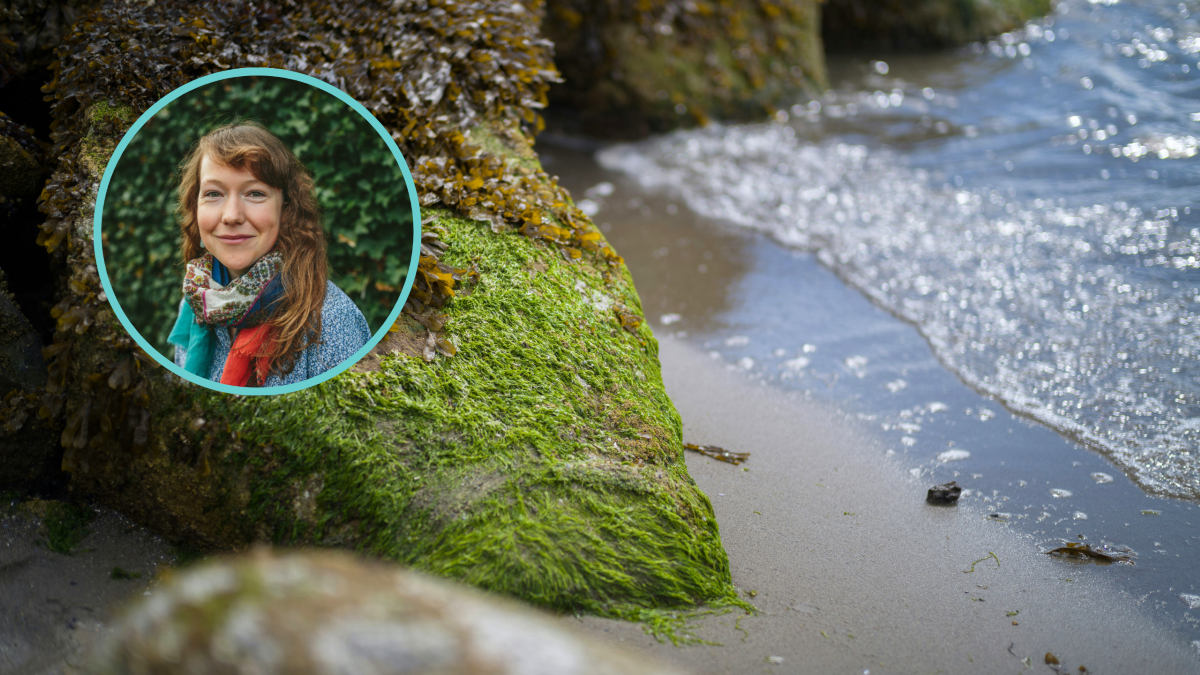
Did you know that West Coast Environmental Law is home to Canada’s only dedicated public interest marine law program? Our expert team of lawyers is hard at work on several important initiatives. Specifically:
- Advancing a Coastal Marine Strategy and law for BC
- Increasing the quantity of Marine Protected Areas (to reach Canada’s 30x30 commitment to protect 30% of lands and waters by 2030) and the quality of their minimum standards
- Strengthening cruise ship and shipping pollution rules
- Ensuring offshore renewable energy projects aren’t situated in Marine Protected Areas
- Working to ensure Canada enshrines its policy moratorium on deep sea mining into law
- Ensuring strong rules and regulations are developed for the emerging marine geoengineering industry
- Supporting IPCAs (Indigenous Protected and Conserved Areas) and Indigenous governance of marine and coastal areas
We chatted with Georgia Lloyd-Smith, Staff Lawyer on West Coast’s Marine team about the program’s priorities.
Hi Georgia! You’ve been on the West Coast team for 10 years and work in both the Marine program and RELAW (Revitalizing Indigenous Law for Land, Air and Water). Can you tell us about how these programs intersect?
Indigenous nations have been governing the Pacific coast and ocean for millennia. It’s only been since Indigenous governance systems were purposefully disrupted by colonial law and policy that we have experienced devastating crashes in fish populations and other ecological tragedies up and down the coast.
In both the Marine and RELAW programs, we focus on supporting Indigenous nations as caretakers of the coast and oceans by uplifting their laws and governance systems. Many Nations are taking matters into their own hands by protecting key coastal and marine areas under their own laws. These areas, known broadly as Indigenous Protected and Conserved Areas or IPCAs, improve ecological, community and economic health for the benefit of us all.
Our role as lawyers is to provide legal support to Indigenous nations in this work, including the Kitasoo Xai’xais Nation’s Gitdisdzu Lugyeks Marine Protected Area, the Kwikwasut’inuxw Haxwa’mis First Nation’s Hada and Kakweikan IPCA and Mowachaht/Muchalaht First Nation Salmon Parks. We support coalitions of First Nations to gather and learn from each other, and we also work to encourage BC and Canada to improve their laws to better support Indigenous-led conservation.
Last year, the province adopted a Coastal Marine Strategy. West Coast played a significant role in advocating for this strategy. What’s the next step to make sure that the strategy is implemented, and how is West Coast participating in that process?
From rising sea-levels, to pollution, to derelict vessels and hardened shorelines, the coast of BC is under threat from neglect and over-use. These challenges exist, in part, because the Government of BC has been governing the coast through a patchwork of regulations and laws overseen by different ministries and departments – with no overarching vision for decisions. And until now, it was one of the only coastal jurisdictions in North America without a comprehensive plan to protect it.
Now, we are working to ensure the new Coastal Marine Strategy effects real change on the ground – and doesn’t become just another policy document collecting dust on the shelf. In particular, we are working with Indigenous governments, industry, municipalities and other environmental groups to ensure BC enshrines the strategy into law for long-lasting effect. Staff Lawyer Erin Gray recently highlighted how the Coastal Marine Strategy can make a real difference on the coast.
In addition to physical pollution from the shipping and cruise industries, one area that the Marine team has an eye (or ear) on is underwater noise from vessels and industrial ocean use. Marine Team Staff Lawyer Stephanie Hewson even co-authored a publication about it. Can you tell us why we need to be paying attention to this?
We are learning more and more about how much marine wildlife depend on sound to survive. Whales, fish and even invertebrates like lobster, shrimp and crab all use sound to communicate with one another, to hunt and to find shelter. Unfortunately, the ocean is getting much louder because of human activities like shipping, energy exploration and underwater construction.
We need to update our laws to keep pace with this reality, to ensure a quieter future for the ocean. This includes using laws to set noise thresholds for different regions of the ocean, creating quiet areas for wildlife to take refuge, and setting standards that encourage the use of quieter technologies.
Canada recently signed a promising international Declaration for a Quiet Ocean, which includes many proactive solutions – now we are ready to push to make these commitments a reality.
Anything else you think people should know about the Marine Program at West Coast?
We love collaborating and do our best work supporting First Nations, local groups, ENGOs and Crown governments to keep the coast and oceans healthy. We release a quarterly newsletter, The Law Aquatic, to keep you informed on coastal and marine issues. If you want to support the Marine Team and all West Coast’s work to advance just environmental decision-making, please donate today.
West Coast Environmental Law Program Spotlight Series:
- Strong Canadian Environmental Laws with Anna Johnston
- Liveable Sustainable Communities with Deborah Carlson
- Sue Big Oil with Andrew Gage
- Revitalizing Indigenous Law for Land, Air and Water (RELAW) with Katłıà Lafferty and Rayanna Seymour-Hourie
- Community Outreach with Tra Mi Do Le
- Marine Protection with Georgia Lloyd-Smith